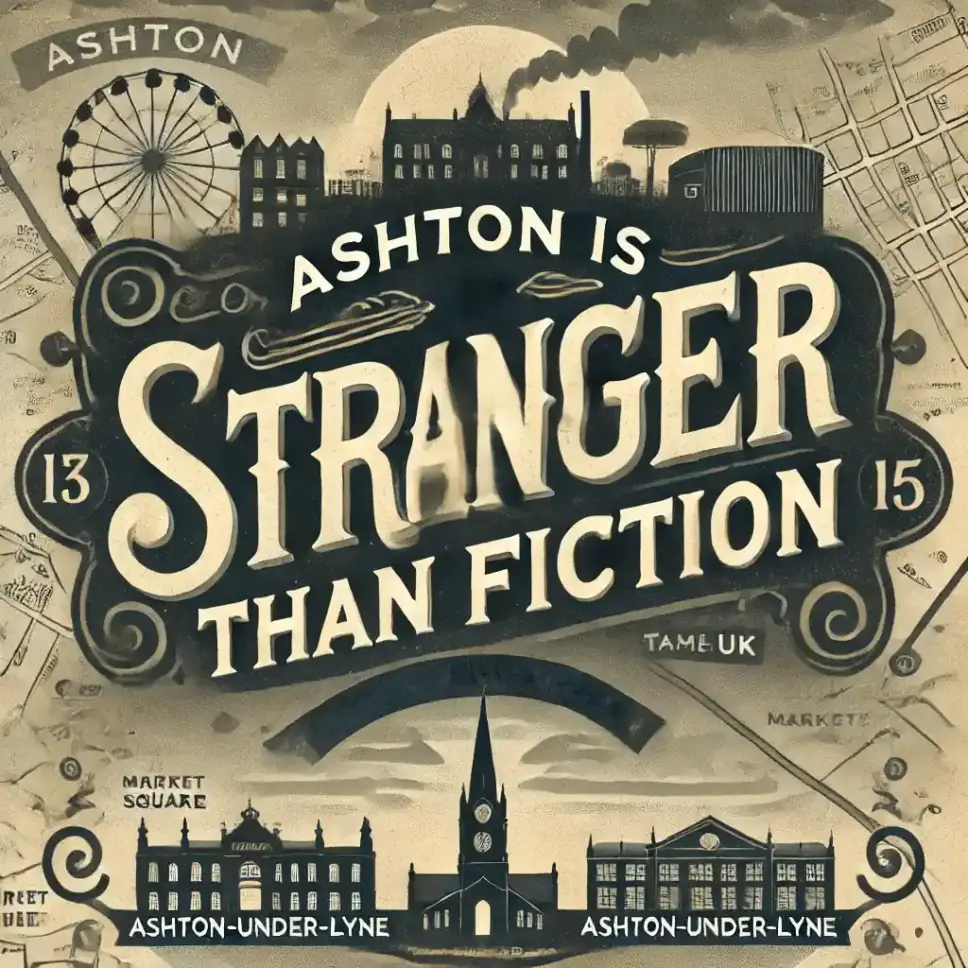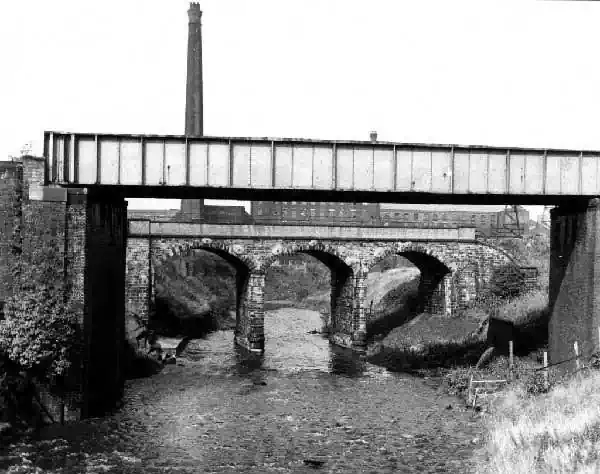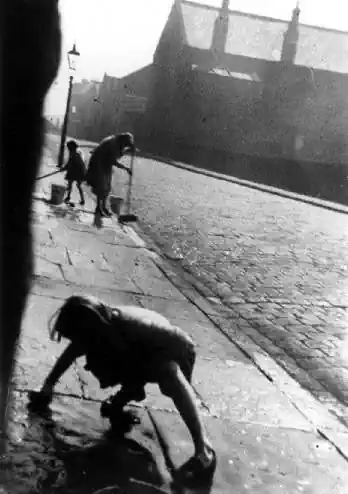Made in Ashton under Lyne Donkey Stones

Quick Summary
Content type: Local History
Read time: 3 – 5 min
Donkey stones were once a household staple in northern mill towns like Ashton-under-Lyne, used to scrub and decorate stone steps with a clean, neat border. Originally made for cotton mills, they became part of weekly domestic rituals and local pride. Ashton’s Lion brand, produced by Eli Whalley & Co, was among the most well-known, with millions made annually until production ceased in 1979. Though no longer made, their legacy lives on through museum displays, blue plaques, and fond memories of a vanished tradition.
For people of a certain age, the Donkey stone remains a memory of mills and their rows of terrace houses. For those that don’t know what a Donkey stone was this should be a fascinating read and an insight into working-class pride in their homes.
Before their decline, Donkey stones were used for cleaning the greasy steps in textile mills, the mixture applied a non-slip coating making them safer. Due to their wide use in the mills and the fact they were often used by female workers; this old-fashioned and intensive cleaning method was used in the homes of the workers.
Tip: As of 2018, Donkey Stones are no longer manufactured.
Although this started to decline from the 1960s, I can still remember the clean front steps in 1970s Stalybridge; and women on their knees with a Donkey stone and a bucket of water. For those of you who have no idea what a Donkey stone is, it was a block about the size of a bar of soap. It was made from mixing ground sandstone, concrete, bleach powder and water. The mix was then moulded into oblong blocks, and then dried; producing a hard abrasive cleaner. When used with hot water on a step, not only did it clean; but also ensured greasy steps were safer to use as it applied a temporary non-slip coating.
Lion Brand Donkey Stones, Made in Ashton under Lyne
Lion brand Donkey stones were made in Ashton under Lyne at the factory of Eli Whalley. A business that began in the 1890s and didn’t cease trading until 1979, was based at the junction of the Ashton and Peak Forest Canal. Initially, a large grinding machine worked on the sandstone used, following this concrete, bleach powder and water were added. They were mixed to a paste which was then placed on a bench and moulded into an oblong which produced thirty Donkey Stones each time.
Each stone after it was cut would be stamped with the Lion brand logo, which was taken from a photograph of a Lion; a resident of Belle Vue Zoo, Manchester. The stones were then placed on racks for drying, a process that was often affected by the weather and humidity. Normally the Donkey stones would dry for three days but this could be extended if the weather was wet and or humid.

A mill producing Donkey stones at the side of a river
How Donkey Stones Were Distributed.
The mills and factories that Donkey stones were intended for were supplied by Lion directly. Another big customer was the Co-operative Society which took bulk deliveries of Eli Whalley Lion brand Donkey stones. However, for the domestic customers in the working-class communities of Ashton under Lyne and the surrounding area, distribution was handled in a different way.
The women in these communities did not conventionally pay for Donkey stones as money was tight for the average working-class family. A Donkey stone was a must-have item for women who took extraordinary pride in their steps and surrounding stonework. Their suppliers of Donkey stones were, in fact, the rag and bone men, collectors of unwanted household goods and scrap metal; and Donkey stones were what was received in exchange for the unwanted items.
Donkey Stones & Competitive Women
As we previously said Donkey stones, were used to clean greasy steps in mills and factories. Their use was extended to the front and often the rear step or working-class homes and was always a wonderful opportunity for a gossip with your neighbour. The practice of cleaning the step though was extended to using Donkey stones to clean the flagstones adjacent to their homes and for some even the surrounding stonework. So, despite the friendly banter, the women out there cleaning their front steps were trying to outdo their friends and neighbours.

Cleaning doorsteps and surrounding stonework with Donkey stones
A shift in modern attitudes due to more of the world owning their own homes, rather than how it was when most of the working-class families rented a home. This has taken away the pride shown in a rented property that was once so prevalent. It even mattered how clean your doorstep was, never mind the interior of the home, I can’t imagine anyone these days cleaning their doorstep with such enthusiasm; then shown by the hard grafting, working-class women of the twentieth century. Remember that many of these Ashton under Lyne women also worked in the same mills as their husbands did.
Donkey Stones Passing into History
These 20th-century step cleaners have had their day, but someone must still produce them as they are available on the indoor market Ashton under Lyne. Eli Whalley’s closure though in 1979 did not end the history of this business. The equipment that produced probably millions of these must-have items of the past; can be found at the Portland Basin Museum Ashton under Lyne. Based on the same wharf as the original factory which in its heyday employed eight workers. Those eight workers produced over 14,000 Donkey stones a day or as I have seen it written recently 100 gross.
The origin of name Donkey Stone comes from the original brand name Donkey brand produced by Edward Read & Son Ltd of Manchester. J Meakin & Sons also based at Donkey Stone Wharf like Eli Whalley produced the Pony Brand Donkey Stones, they closed a full decade before Eli Whalley in the 1960s.
This once-must-have item has been consigned to history. The only evidence still left are some worn stone steps on some of Ashton under Lyne’s terraced streets. If you have any feedback on this or any of our blogs please let us know. Thank you as always to the Tameside Image Archive, their images add that extra something to our local history blogs.
Disclaimer: Information correct at the time of publishing (December 2017) but is subject to change. E&OE.
Get started in seconds!
Save your details, view past orders, and enjoy a faster checkout every time.